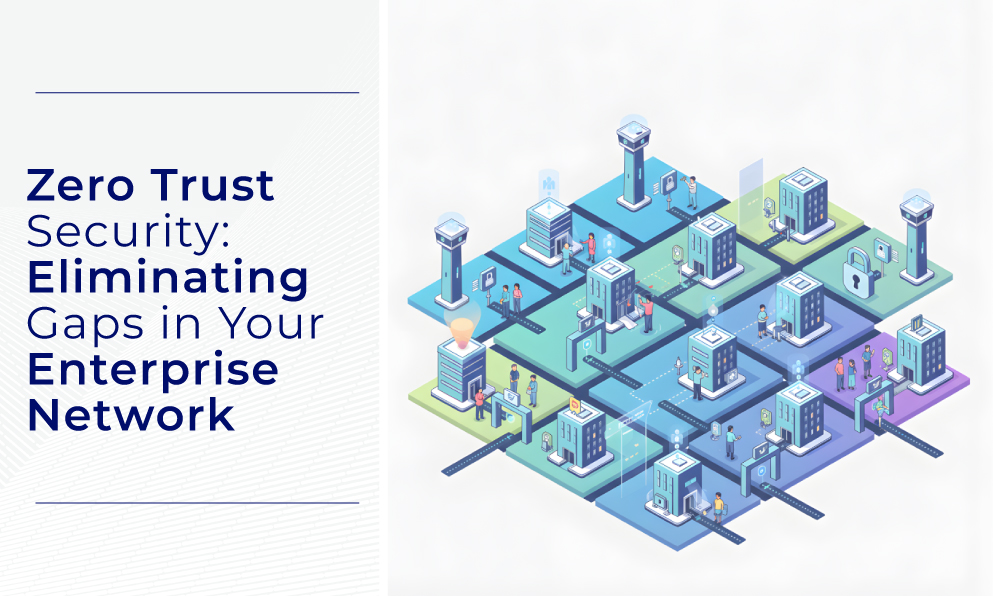Do you feel as though the cybersecurity environment is always shifting under your feet?
We have seen the definition of cybersecurity risks change over the last two years, as have new categories of security threats. The top cybersecurity concerns of today would probably seem different than they did prior to the COVID-19 pandemic.
Let's face it: if you're still catching up in this new environment, you won't be able to predict and manage today's cybersecurity hazards. This blog was created to offer you an overview of the many cybersecurity threats that your company is now facing.
By 2023, it is expected that cybercriminals will acquire 33 billion pieces of data per year.
Although these cyberattacks are aimed at everyone, studies show that small businesses are among the most common targets. In fact, small businesses are the target of 43% of cyberattacks.
Fortunately, there are software and online security services available to help protect your business from hackers. BJIT has identified the top software security threats for 2022, along with solutions for your company to combat them.
Cybersecurity 2022
Cybersecurity is a reality in today's environment.
With everything connected to the internet, cybersecurity is more important than ever to safeguard computer systems from threats to their availability or service disruption, as well as from unauthorized access, or destruction of hardware, software, or electronic data.
Unfortunately, data breaches continue to occur on a regular basis. There are several stories of hacking that resulted in the theft of consumer data from banks, credit card firms, online retailers, phone providers, and other businesses.
Working from home, the Internet of Things (IoT), carrying your own device, and cloud activities have opened up new channels for hackers to access your company by vastly extending the attack surface. AI solutions and machine learning (ML) technologies have given these hackers new tools for disseminating malware, zeroing in on high-value targets, and reaching bigger and more diverse audiences.
As these technologies progress, so do cybercriminals. They became increasingly discreet, cunning, and elusive.
Fortunately, many firms are attempting to improve their cybersecurity measures to combat the four principal threats: malware, ransomware, social engineering attacks, and phishing.
How to Protect Your Business From the Top 2022 Cybersecurity Threats
#Threat 1: Advanced Cyber Attacks
Tragically for modern security organizations, current cybercriminals don't compromise quality for quantity. In addition to a rise in numbers, new cyberattacks also show greater complexity, which can make them extremely hazardous, according to our threat experts.
For instance, current cyberattacks are much more likely to involve numerous phases, exposing businesses to a variety of dangers. Users can be locked out of the corporate network by a ransomware attack, and critical data can also be stolen and sold on the dark web.
Here is what we discovered:
- 86% of businesses have encountered phishing.
What should your firm do to safeguard itself from phishing?
First, keep an eye out for strange emails and instant messages. They may begin with strange terminologies, such as "Dear Customer" rather than your name, have poor grammar, or use a generic signature.
Second, even if a link looks to be authentic, use caution when clicking on it or providing critical information. If in doubt, contact the source directly to ensure they delivered the communication.
Finally, on internet browsers, install anti-phishing toolbars. These toolbars notify you of sites that contain phishing information.
- Unwanted crypto-malware was encountered by 69% of the organizations.
What should your firm do to safeguard itself from crypto miners?
Create a plan that addresses all the elements that interact with your systems, including users and other apps. Create a blacklist of unauthorized websites or install plugins that block such sites. Make certain that everyone in the company is aware of the security precautions you put in place.
Monitor the performance of your CPUs. Whatever technique is employed, crypto-mining will burn up a lot of resources. Therefore, it will be simple to locate the impacted devices. So, try to always keep an eye on how well your systems' CPUs are performing.
- 50% of businesses have encountered ransomware.
- Malware that stole information from organizations affected 48% of the organizations.
How to protect against cyber attacks from ransomware and malware?
To begin, ensure that all of your software and hardware are up to date. Outdated software, drivers, and plugins contain security flaws. Check with your IT service provider to ensure that this is occurring on your servers.
Second, activate click-to-play plugins to prevent Flash or Java from starting unless a link is clicked. This decreases the possibility of malware programs operating in Flash or Java.
Third, deleting obsolete software, often known as Legacy Apps, decreases risk. For example, if you have Windows 10 but use apps intended for Windows 7, they are known as Legacy Apps and may pose a security concern. Your software firm should be able to provide you with an updated application for Windows 10.
Therefore, finding a cybersecurity solution supported by reliable, actionable intelligence is a must for current security teams since the development of the most common cybersecurity assaults creates a very serious threat to enterprise networks.
#Threat 2: Attacks against cloud services
The popularity of cloud services and infrastructure is increasing as more businesses move their employees to distant locations. As a result, cloud services that haven't completely safeguarded their platforms in new infrastructures are now vulnerable to attacks from hackers.
Attackers might target services and take advantage of them to get vital information. Before integrating cloud services into procedures, one must exercise caution.
How to protect against cyber attacks from cloud vulnerabilities?
The implementation of "Zero Trust" cloud security architecture is one of the most recent advances in cloud security. In order to implement the necessary verification at each step and with each sign-in, zero trust systems are built to operate as if the network has already been compromised. This means that they do not allow recognized devices or devices that are inside the network perimeter to have access for an extended period of time.
#Threat 3: The Internet of Things
Over a quarter of the workforce brought their jobs into their homes, where 70% of families had at least one smart device as a result of the pandemic-induced shift away from the workplace. Naturally, this led to an increase in cyberattacks against the "Internet of Things" (IoT) or smart devices, with over 1.5 billion breaches happening between January and June of 2021.
IoT connections create a world of risks for hackers when combined with the typical subpar cyber hygiene practices of employees. Within five minutes of connecting to the internet, the average smart device gets attacked. According to experts, a smart house with a variety of IoT devices may be the target of up to 12,000 hacking attempts in a single week.
How to protect against cyber attacks from IoT vulnerabilities?
Firstly, back up your data and save it separately to stay ahead.
Backing up all data is another crucial step in preventing security breaches after encryption. You may remain one step ahead of ransomware hackers by backing up all of your data and keeping it separate. Ransomware hackers lock firms out of their systems, encrypt their data, and demand a ransom before releasing the data.
Therefore, the key to preventing malware from getting into your computer systems is to invest in an efficient firewall and anti-malware software. Additionally, because cyber security risks are evolving quickly, it's important to always pay attention to update notifications and execute them as soon as they appear. These updates are a crucial weapon in the battle against cyberattacks since they are developed in response to the most recent cyber threats.
For further information, please obtain our expert guidance about cyber security insurance. Reduce your risk by getting professional assistance when choosing the right kind of insurance for your business, depending on your risk of being attacked and the financial effect of such an occurrence.
What Approach Will You Take Against Today's Cybersecurity Threats?
The BJIT Cybersecurity team is ready to help you avoid the greatest software security threats of the present if you're seeking a trustworthy offshore software development partner!
We have a talented pool of software developers that passed a rigorous hiring procedure. To assure top-notch hiring, our recruiting team conducts background checks, interviews, and skills evaluations. You may feel secure knowing that you are as secure as it is possible with the help of our thorough cybersecurity defenses and the safety net.











